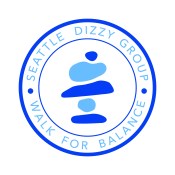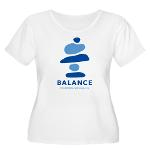
Decreasing Chronic Inflammation Naturally
by Heather Flood, ND, MS, LAc
of Bastyr Center for Natural Health
(Presented to Seattle Dizzy Group on 3/12/16)
This presentation gives an overview of the inflammatory process and offers natural ways to reduce excess inflammation in order to improve health and help manage the symptoms of a chronic vestibular or balance disorder (which may be caused by or exacerbated by chronic inflammation–for example, Meniere’s vertigo attacks, migraines, tinnitus, etc.).
Purpose of Inflammation
Normal and Important Process for:
- Removing damaged tissues
- Fighting microbial invaders
- Eliminating abnormal cells
- Recruiting white blood cells to injured area to allow for recovery
We couldn’t survive without this necessary process!
Too Much of a Good Thing?
- Indiscriminant cell destruction
- Chronic inflammation
Symptoms of Excess Inflammation
- Chronic red eyes and runny nose
- Dry skin, especially behind the ears and around the nose and eyebrows
- Fluid retention
- Allergies
- Pain and stiffness in the morning
- Swollen ankles
- Unexplained abdominal pain
- Chronic low level fatigue and pain
Causes of Excess Inflammation
Excessive Inflammatory Stimulation
- Environmental allergens
- Foods: additives, oxidized fats, high AGE
- Medications (acetaminophen, allopurinol, barbiturates, etc.)
- UV, x-rays, radon, tobacco smoke, obesity
- Trauma
Excessive Inflammatory Response to Damage
- Fats
- Arachidonic acid
- Too few Omega-3s, too many Omega-6s
- Trans fats
- Excess sugar
- Food additives
- Allergens
Poor Inflammation Quenching
- Inadequate anti-oxidants
- Inadequate liver detoxification
- Inadequate sleep (increases Interleukin-6, elevates C-Reactive Protein)
Ways to Reduce Excess Inflammation
Consider:
- Standard American Diet (SAD)
- Excess sugar
- Excess Arachidonic acid (Omega-6)
- Insufficient Omega-3
- Processed foods
- Allergies
- Foundations of Health
- Hydration
- Sleep
- Exercise
- Quit smoking
Anti-Inflammatory Diet
Sugar/Glycemic Load
Sugar greatly increases inflammation.
Study of 200 healthy women measured effect of glycemic load and found significant and positive association with increased C-Reactive Protein. (Liu S, et al. Am J Clin Nurt. 2002)
Dutch study of 1000 men and women found association with glycemic load and C-Reactive Protein. (Du H, et al. Am J Clin Nutr. 2008)
*C-Reactive Protein measures general levels of inflammation in the body.
Pro-Inflammatory Fats
- All fats provide 9 kilocalories per gram
- But which ones have positive effects?
Trans Fats
- Mostly made from food processing call partial hydrogenation
- Shortening and stick margarine
- Most processed foods
- Increases LDL cholesterol and lowers HDL
- Studies show it is linked to cancer, obesity, metabolism issues, heart disease, Alzheimer’s, memory loss, depression and reduced cognition
Saturated vs. Unsaturated Fats
- Tells us about “stability”, how likely it is to be oxidized (Saturated fat is more “stable” than unsaturated fat)
- How many binding sites it has open
- Fats with fewer open binding sites are more stable – they’re less likely to let a free radical oxidize them by stealing an electron
- Oxidized fats speed up aging and create inflammation
The Three Types of Fat from Most Stable to Least:
Saturated Fats
- All the binding sites are filled
- Every seat on the bus is taken
- A free radical can’t get in anywhere to grab an electron and oxidize the fat
- Solid at room temperature
- Animal sources: beef, pork, butter, full-fat dairy products
- Increases LDL cholesterol = Cardiovascular Disease (CVD)
Monounsaturated Fats
- One seat open!
- Relatively stable, but not as stable as saturated fats
- Liquid at room temperature
- Olive oil, coconut oil, avocado oil, peanut oil, sesame oil
- Reduce the bad cholesterol (LDL)
Polyunsaturated Fats
- Least stable, very open for oxidation
- Poly = “many” seats available
- Omega-3
- Salmon, trout, mackerel, sardines, herring, flaxseed, walnuts, sunflower seeds, leafy vegetables
- Omega-6
- Peanut oil
- Poultry, eggs, grains, soybean, canola oil, safflower oil, mayonnaise
- Omega-6 to Omega-3 ratio should be between 1:1 and 3:1
American Diet
- Omega-6:Omega-3 = 15:1
- High in added sugar and processed foods.
Diet Recap
- The types of foods that we eat are important.
- Good fats are beneficial.
- Saturated and trans fats increase risk for cardiovascular disease.
- Proper Omega-6 to Omega-3 ratio is important to prevent increased inflammation. (Goal: between 1:1 and 3:1)
- Diet should be 30-50% fat (mostly Omega-3s, low saturated fat).
- Include protein at every meal.
- Reduce or avoid added sugar and processed foods.
Mediterranean Diet
- Studied for its effects on lipids and cholesterol
- Evidence it has positive effects on lowering insulin levels and decreasing blood pressure
- It is anti-inflammatory
- Multi-colored fruits and vegetables
- Whole grains and nuts for a fiber source
- Short-grain brown rice, millet, quinoa, buckwheat, amaranth
- Almonds, walnuts, pecans, hemp seed, sunflower seeds
- Roughly 30% of calories from fat, mostly EVOO and cold water fish
- Modest saturated fats from dairy and land animals
- Low in refined sugars
- Moderate consumption of EtOH, usually from red wine
Spices
- Ginger
- Garlic
- Turmeric
- Fennel
- Rosemary
- Sage
- Cinnamon
- Mint
- Chili peppers
- Parsley
- Cilantro
Anti-Inflammatory Diet Document
Pesticides in Produce
Environmental Working Group (EWG) recommends buying organic produce whenever possible in order to reduce exposure to pesticides. However, organics are not accessible or affordable for everyone, so the Clean Fifteen and Dirty Dozen shopping lists help consumers make the healthiest choices given their circumstances. Conventionally grown produce is still better than not eating fruits and vegetables. (http://www.ewg.org/foodnews/faq.php)
Clean Fifteen
- Asparagus
- Avocadoes
- Cabbage
- Cantaloupe
- Cauliflower
- Eggplant
- Grapefruit
- Kiwi
- Mangoes
- Onions
- Papayas
- Pinapples
- Sweet Corn
- Sweet Peas
- Sweet Potatoes
Dirty Dozen
- Apples
- Celery
- Cherry Tomatoes
- Cucumbers
- Grapes
- Nectarines
- Peaches
- Potatoes
- Snap Peas
- Spinach
- Strawberries
- Sweet Bell Peppers
- +Hot Peppers & Kale/Collard Greens
Environmental Working Group’s Guide to Pesticides in Produce
 Allergies
Allergies
Food Allergy + Food Sensitivity + Seasonal Allergy = Total Inflammatory Load
(The body responds to high levels of inflammation like a cup being filled beyond its capacity to overflowing causing negative health impacts)
Food Intolerance/Sensitivity
- Can cause IBS or Leaky Gut
- Elimination Diet (eliminate foods for period of time, usually a few weeks, and then reintroduce foods one by one to test tolerance)
- IgG Food Allergy Panel (blood test for antibodies–not always accurate, but can be a helpful starting place)
- If Food Allergy = AVOID these foods completely!
- If Food Sensitivity, then try Rotation Diet (only eat foods that cause sensitivity once in a while)
- Other Diets to Try: Anti-Inflammatory, Paleo, Auto-Immune Protocol (AIP), Low FODMAP, SCD, GAPS, No Nightshades, etc. (Requires trial and error exploration to find what works best for you)
Allergy Relief
- Natural Anti-histamines
- Nettles, Querctitin, Vitamin C
- Hygiene
- Neti Pot
- Home Hygiene (change pillow cases frequently, change sheets weekly, no shoes in the house, etc.)
Foundations of Health
Hydration
- 1/3 of your body weight in ounces (plus an additional glass of water for every caffeinated or alcoholic drink)
- Flush out toxins
- Keep cells supple
- Drink non-caffeinated beverages like herbal teas (green tea or “decaffeinated” tea/coffee have caffeine and are dehydrating)
- Eat hydrating foods (like watermelon) and drink coconut water or electrolyte water
- Drink plenty of water even if you are taking a diuretic (as for Meniere’s Disease or Hydrops)–your kidneys will absorb what hydration your body needs and the diuretic will get rid of the excess. A potassium-sparing diuretic may help keep you hydrated.
Sleep
- It is important to get good sleep!
- Decreased sleep increases inflammation.
- Sleep is when our bodies repair themselves.
- Extreme fatigue is a result of total inflammatory load
- Deep/refreshing sleep decreases Interleukin-6 and C-Reactive Protein (indicators of inflammation in the body)
Exercise
- Lubricates the joints
- Brings blood, oxygen, and nutrients to the brain
- Really great for osteoarthritis
- Helps keep off extra weight
- Decreases blood sugar
- Goal: 60 minutes of moderate exercise each day
- Move your body as long as it doesn’t hurt to move
- Try: Sit and Be Fit (online workouts) or Feldenkrais classes (Move Beyond Limits)
More Information About Reducing Inflammation:
Tips to Fight Inflammation with Food
5 Easy Ways to Reduce Inflammation
 Heather Flood, ND, MS, LAc
Heather Flood, ND, MS, LAc
of Bastyr Center for Natural Health
Dr. Flood is a first-year resident at Bastyr Center for Natural Health, providing supervision and clinical training to student physicians in the Department of Naturopathic Medicine. She also sees patients in private practice at Bastyr Center, where she integrates her western and eastern medical training.
Dr. Flood’s areas of expertise include integrative primary care medicine, physical medicine, pain management, acupuncture and East Asian herbal therapeutics. Her clinical interests are preventive medicine, women’s health, pediatrics, chronic disease management, diabetes, cardiovascular medicine, autoimmune disease, gastroenterology, endocrinology and mental health.
Dr. Flood believes in the human body’s propensity toward health and strives to encourage and promote its innate healing capacity through individualized medicine. By focusing on a holistic approach and addressing the physical, mental and emotional components, she is better able to identify the root cause of illness, allowing her to tailor treatments and interventions so they are best suited for each individual’s needs. She firmly believes in educating and empowering patients to understand their bodies and participate in their wellness.
More information about Dr. Flood
*******
Presentation information is not meant to be taken as medical advice.
Presentations posted online may include discussion notes, links, images, and other information added by Seattle Dizzy Group.
*******
Post updated April 13, 2016
© Copyright 2016, Seattle Dizzy Group. All rights reserved.













[…] 2016, we had guest speakers on the topics of Reducing Inflammation, Vestibular Testing & Assessment, and Vision […]
By: Stronger Together in 2017 | Seattle Dizzy Group on January 31, 2017
at 10:43 pm